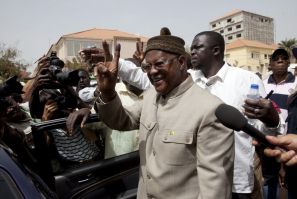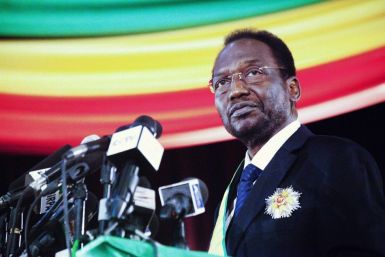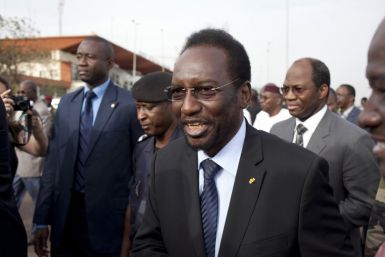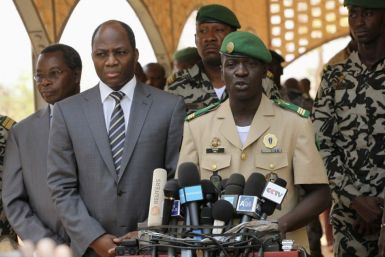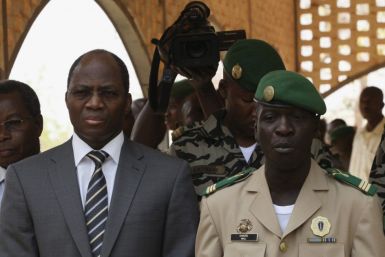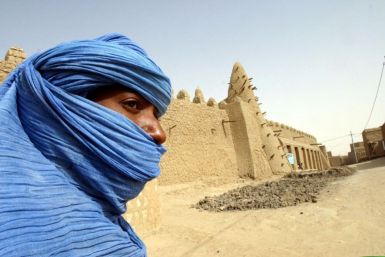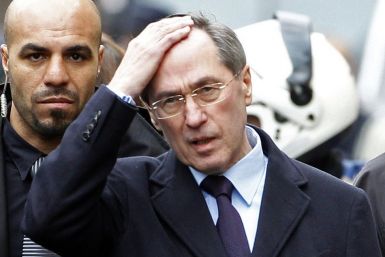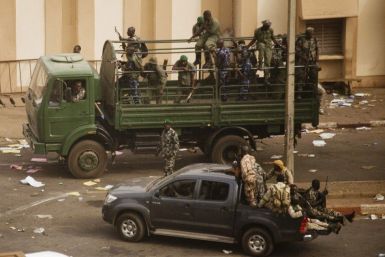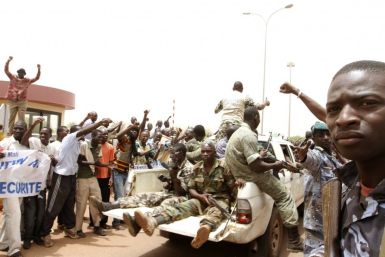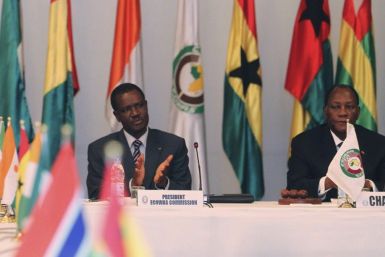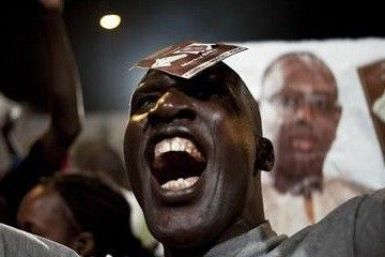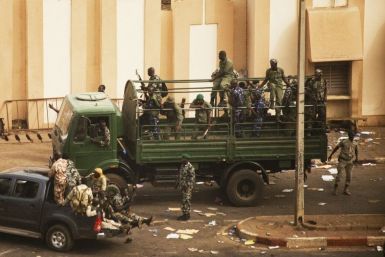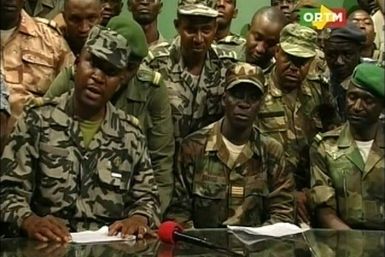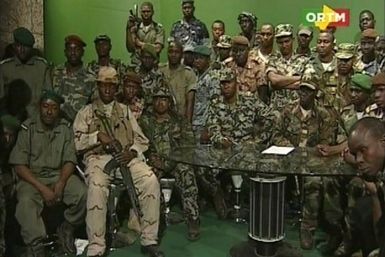Adding to Mali’s insurmountable problems is the threat of civil war, prompted by an insurgency in the north by the minority Tuareg people.
As Mali prepares to organize new elections following the swearing in of interim president Dioncounda Traoré on Thursday, crises in the north continue to escalate.
Samsung is all set to roll out its Galaxy Note 10.1 tablet. How well the Note will fare against Apple's new iPad and Asus Transformer Prime TF700T?
Avion Gold Corp reported a 30 percent rise in first-quarter production at its Tabakoto and Segala projects in Mali, sending its shares up about 20 percent, but said its mill expansion may be delayed as the coup-hit West African country limps back to normal.
Mali's ousted president penned a resignation letter Sunday and in the presence of reporters handed it to an emissary to deliver to the country's new leaders.
The head of Mali's Parliament, Dioncounda Traore, who was exiled following last month's military coup, returned Saturday as interim president after rebel army leader Captain Amadou Sanogo agreed to reinstate constitutional rule.
Captain Amadou Sanogo, who led the coup in Mali and a junior officer in the military, has agreed to handover power to a civilian government, state local television reports. The move came after intense pressure from the international community, which outrightly denounced the coup in March. They also rejected the declaration of independence announced by the Tuareg rebel leaders.
On its website, the group representing Tuareg rebels cites atrocities and more than 50 years of bad governance as reasons for declaring independence from Mali, whose government was toppled in a March 22 coup.
Rebel military leader Captain Amadou Sanogo led a March 22 coup in Mali, which deposed democratically-elected President Amadou Toumani Touré. Sanogo cited frustration with Touré's handling of an insurgency by members of the Tuareg ethnic group in northern Mali as the reason for the coup.
Since the military-led coup last month, the situation in Mali has become increasingly unstable as coup leaders are now accusing the ousted President Toure of high treason.
Unesco has issued a warning for the safety of Timbuktu since the Tuareg rebels defeat of Malian government authorities in the northern part of the country.
On Monday, French Minister of the Interior, Claude Gueant, announced the expulsion of Algerian and Malian imams because they posed a threat to the French public's security.
The chief of the junta in Mali had promised to restore civilian rule and call new elections, but has so far not done so.
Representatives from the Economic Community of West African States, or Ecowas, said they would decide Monday what action to take against Mali's ruling junta, which missed a deadline for ceding power to civilians.
Mali's junta leader promised to reinstate the constitution from Sunday, hours before a deadline set by West African neighbors to start handing over power, and as rebels encircled the ancient trading post of Timbuktu.
A group of West African president's cancelled their visit to Mali mid-flight after hundreds of pro-junta supporters rushed the runway at Bamako's airport on Thursday.
Following the recent military coup, the West African regional bloc suspended Mali from participation and threatens the use of force to restore the constitutional government.
The big winner tonight is the Senegalese people, Macky Sall said of Sunday's run-off election. He defeated 12-year incumbent Abdoulaye Wade, a political mentor to Sall before the two had a falling-out.
It was on Mali's state television that a rebel faction of the military announced Thursday it was staging a coup to overthrow the democratically elected President Amadou Toumani Touré. On Friday, the station in Bamako ceased broadcasting as rebels constructed barricades around the capital in anticipation of a countercoup by loyalists.
The leader of the three-day-old coup in Mali says he will step down and schedule elections once security is established in the country.
Although leaders of the military coup in Mali appear to be rounding up and jailing potential opponents among politicians and policymakers, they seem to be trying to minimize disruptions to the economy and daily life, leaving in place government ministers in charge of finance, trade and industries.
The EU announced it was to suspend development operations in Mali Friday, after mutinous soldiers overthrew President Amadou Toumani Toure, sealed the borders and allegedly arrested members of the government.









